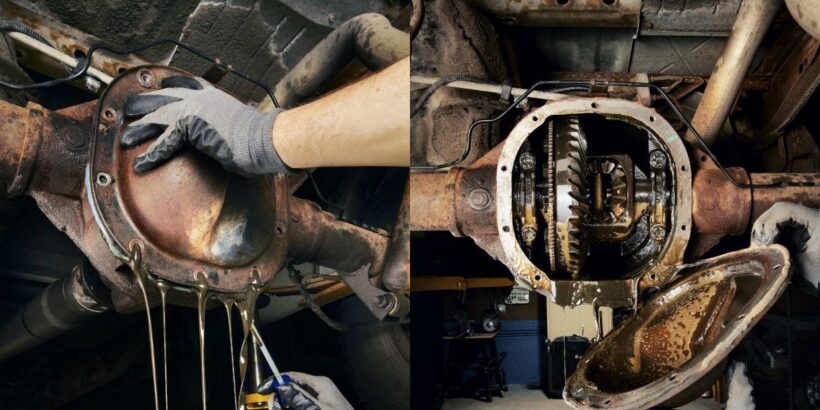Differential gear oil is the unsung hero of the vehicular world, vital in ensuring the smooth functioning and longevity of vehicles. Diving deep into this crucial component, we unravel its importance in vehicle maintenance and performance, shedding light on its pivotal role in the cohesive operation of vehicles.
1. What is Differential Gear Oil?
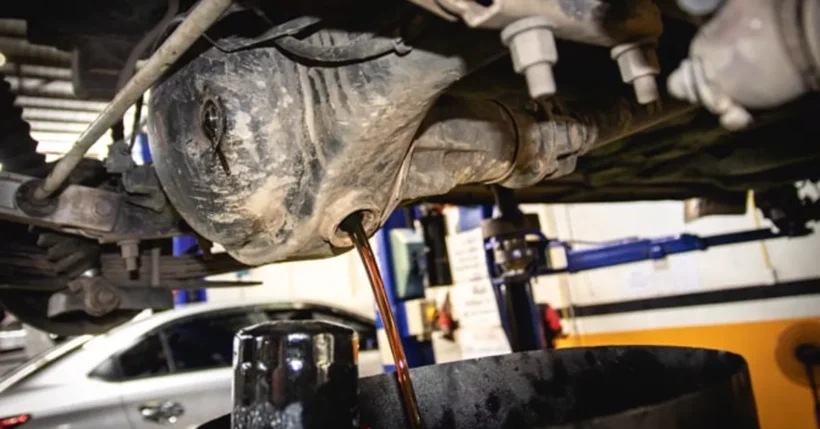
Differential gear oil is a specialized lubricant designed to meet the high-pressure demands of a vehicle’s differential system, which allocates engine power between wheels, allowing them to rotate at different speeds. This liquid is distinct from other automotive lubricants due to its tailored composition that mitigates wear and damage caused by the intense friction within the system.
Automobiles are laden with various oils, each serving a distinct purpose. However, differential gear stands out with its unique capabilities. It endures extreme pressures, ensuring the seamless interaction between gears, thereby facilitating optimal vehicle performance and extending the lifespan of the components it nurtures.
2. The Purpose of Differential Gear Oil
Differential gear oil serves as the lifeblood of the vehicle’s system. Its primary function is to mitigate friction between gears, reducing the generation of excessive heat and preventing wear and tear. It envelops the gear surfaces, providing a lubricating film that shields against metal-to-metal contact, which could otherwise lead to catastrophic failure.
This lubricant is fundamental in ensuring that vehicles operate efficiently, maintaining the integrity of the moving parts within the system. It plays an instrumental role in reducing noise, enabling smooth gear transitions, and maintaining the overall health of the vehicle.
3. Types of Differential Gear Oil
The market is saturated with diverse differential gear oils, primarily categorized as synthetic, mineral, or blended oils. Synthetic liquids, fabricated from chemical compounds, offer enhanced temperature stability and longevity. Mineral oils, derived from crude oil, are more cost-effective but may lack the advanced attributes of synthetic counterparts. Blended types marry the benefits of both, striking a balance between performance and value.
Each oil type caters to specific needs, and the selection depends on various factors including vehicle type, driving conditions, and personal preference. Weighing the pros and cons is crucial in identifying the most suitable oil for your vehicle.
4. Viscosity and Temperature Considerations
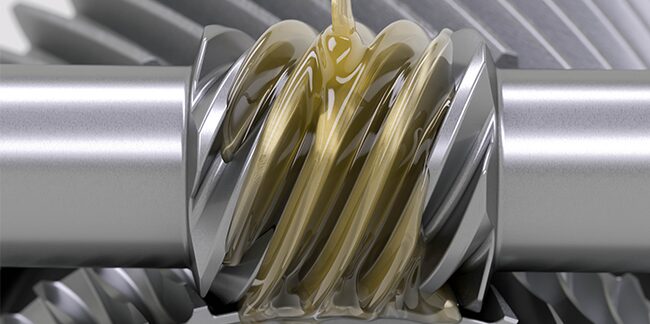
Viscosity is a pivotal factor in the selection of gear oil, dictating the fluid’s resistance to flow. High-viscosity liquids are more resistant to flow but provide a thicker lubricating film, essential in high-load and high-temperature conditions. The choice of viscosity is intertwined with temperature considerations as it influences the oil’s performance under different temperature regimes.
Understanding the symbiosis between viscosity and temperature is imperative in choosing the right oil, ensuring optimal lubrication and protection under the prevailing driving conditions. Temperature fluctuations affect its viscosity, hence the need for vigilance in selecting a product that retains its protective capabilities across diverse climates.
5. Differential Gear Oil Change Interval
A cardinal aspect of vehicle maintenance is discerning when to change the differential gear oil. The recommended interval hinges on factors such as vehicle make, model, driving conditions, and the type used. Adherence to manufacturers’ guidelines is paramount, allowing the system to function at its zenith and averting untimely wear.
However, extraordinary driving conditions, such as towing heavy loads or off-road driving, might necessitate more frequent changes. Regular consultation with your vehicle manual and routine inspections are indispensable in maintaining the optimum state of your differential system.
6. Signs of Differential Gear Oil Problems
Recognizing symptoms of differential gear oil problems is crucial. Common signs include unusual noises from the differential, leakage, and poor handling. Regular inspections and prompt attention to abnormalities are essential in preempting severe damage, reinforcing the importance of vigilance in differential gear liquid management.
Frequent assessments unveil emerging issues, enabling timely intervention and preventing the escalation of minor glitches into major complications, which could potentially jeopardize the vehicle’s functionality and safety.
7. DIY Differential Gear Oil Change
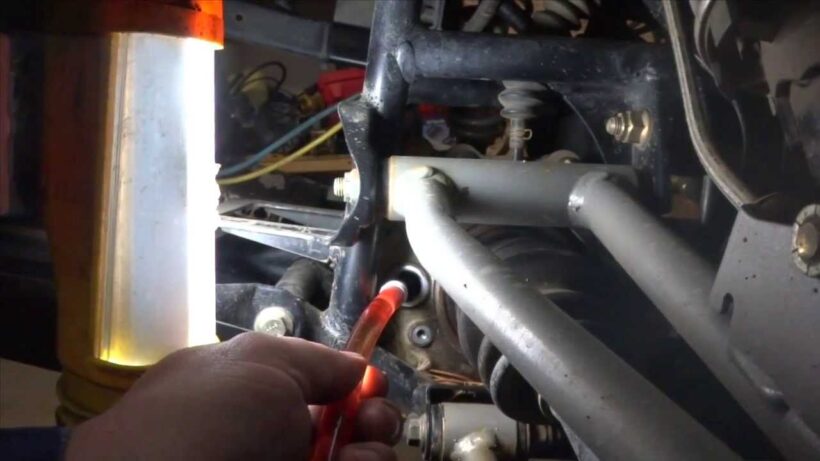
For the hands-on individual, changing differential gear oil is a manageable task. A step-by-step approach, coupled with the right tools and adherence to safety precautions, can make this a seamless process. A set of wrenches, an oil pan, a funnel, and the correct differential gear liquid are the fundamental necessities for this task.
This DIY approach not only imparts a sense of accomplishment but also grants insights into the intricacies of your vehicle, fostering a deeper connection with your automobile.
8. Professional Differential Gear Oil Change
Opting for professional service offers the advantage of expertise and alleviates the burden of personal involvement. Professionals ensure the correct handling and disposal of used gear oil, which is imperative given the environmental implications of improper disposal.
Entrusting this task to a proficient mechanic guarantees meticulous service and peace of mind, reaffirming the importance of professionalism in maintaining the harmonious operation of the differential system.
9. Differential Brands and Recommendations
Navigating the myriad of brands requires discernment. Brands like Mobil 1, Royal Purple, and Castrol have garnered acclaim for their superior quality and reliability. Specific products within these brands have distinguished themselves, earning the veneration of automotive aficionados.
The selection of reputable brands is crucial, serving as an assurance of quality and reliability. Delving into product reviews and seeking recommendations can provide invaluable insights, guiding you to the optimal choice for your vehicle.
FAQs About Differential Gear Oil
Addressing common inquiries demystifies differential gear oil, elucidating its essence in vehicular operation. Questions range from the frequency of changes to the implications of neglecting this vital lubricant. Providing succinct and enlightening responses unravels the enigma surrounding differential gear oil, clarifying its indispensable role in vehicular maintenance.
Transparent and insightful responses to common queries foster a deeper understanding of differential gear oil, enhancing the comprehension of its significance and application in vehicular upkeep.
Conclusion
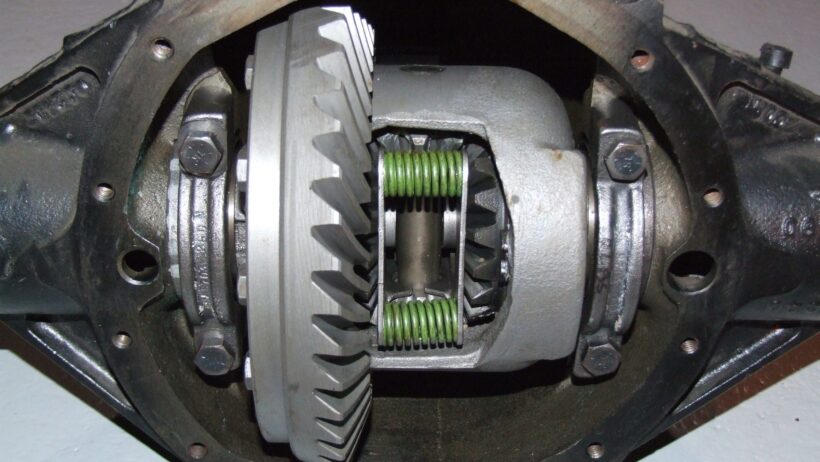
Differential gear oil is a linchpin in vehicle operation, its significance often overshadowed by more overt components. It is the silent guardian of the differential system, shielding it from the detrimental impacts of friction and heat. Its selection, management, and timely replacement are cardinal in maintaining the vehicle’s optimum performance and longevity.
Understanding its pivotal role and bestowing it with the attention it deserves is vital. Whether you prefer a hands-on approach or professional intervention, prioritizing differential gear oil maintenance is a non-negotiable aspect of responsible vehicle ownership.

